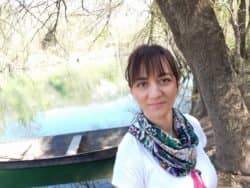
Police and political violence against citizens
Can the chaos in Budva lead to Montenegrin stabilization?
Unemployment has increased by 17 percent in comparison to the period before mid-March, when the crisis started.
The European Commission had sent a so-called non-paper to Podgorica, pointing to a deep crisis in the judiciary, numerous unresolved affairs, pending cases of attacks on journalists, unconstitutional decisions and a general lack of rule of law.

Marijana Camović Veličković
Marijana Camović Veličković graduated from the Faculty of Law in Podgorica and has been working as a journalist since 2001. Since its establishment in 2013, Camović has been head of the Trade Union of Media of Montenegro, and has been particularly interested in the topics of media freedoms, the relations of media owners toward employees and the labor rights of workers in the media sector. She is also a board member of the European Federation of Journalists.
This story was originally written in Serbian.